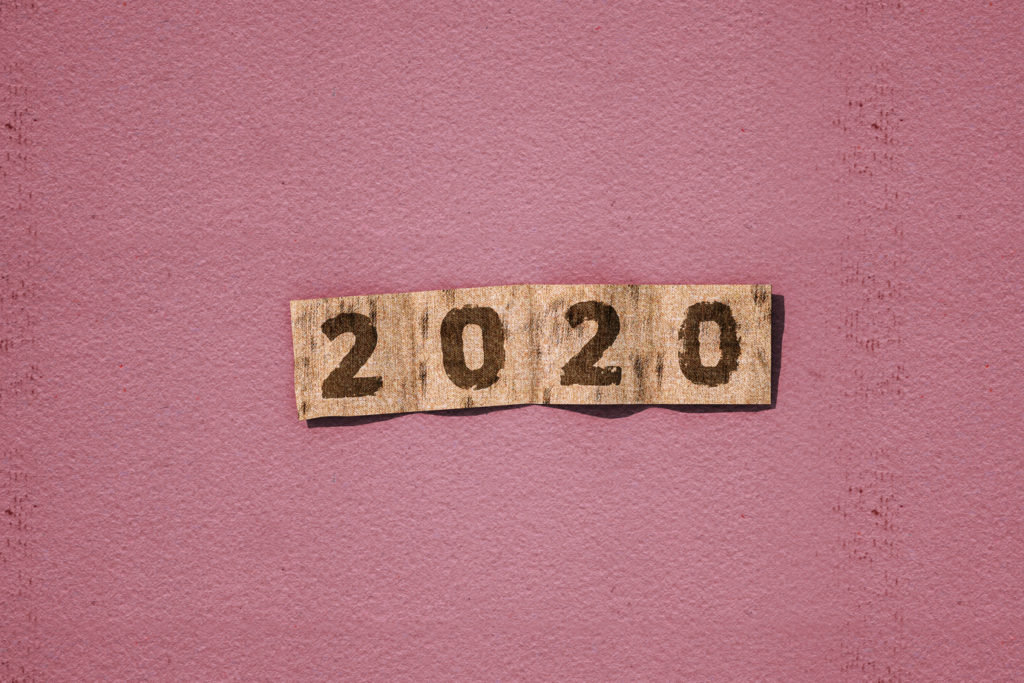A week ago, I received an email which noted that 2020 has been a month too long. I actually think a case could be made that 2020 has been 12 months too long, but certainly December has felt interminably long.
Even before the Covid-outbreak in Sydney’s northern beaches sent Australians and their holiday plans back into disarray, virtually everyone I saw or spoke to this month expressed a similar sentiment: they’re limping to the finish line. Frankly, limping is a generous and elegant descriptor for the manner in which I’m crawling to the end of this year.
“ARE WE THERE YET?” has been playing on a loop in the back of my mind for the last twenty-two days.
And I say this as someone who didn’t live through Melbourne’s brutal lockdown; as someone who is not trapped overseas, unable to come home; as someone who didn’t fight to save my house or loved ones from bushfires at the start of the year; as someone who has maintained employment through Covid.
I am one of the very lucky ones on account of several blessings – some random, some not – that I have counted and thanked often. If 2020 has felt long and relentless even for the lucky ones it’s been a living nightmare for millions of others. The distress, trauma, anguish, disappointment, uncertainty, fear, exhaustion and grief experienced cannot be understated. The toll the pandemic has exacted is terrifying.
In recent days, as the Covid19-cluster in Sydney has spread, and I’ve returned to the all-too-familiar panic-mode, constantly refreshing the news feed and checking for updates, I’ve wondered whether the enduring lesson from 2020 is that we’re not in control. Not the way we thought.
Back in March, when Australia was coming to the grips with this contagious virus, it was impossible to escape the fact that we weren’t in control. Overnight things that even weeks earlier had seemed completely unfathomable – workplaces sending staff home, schools closing, domestic and international borders enforced, sporting fixtures cancelled, gatherings banned, hospital visitors turned away – became the norm. We were at the whim of forces beyond our individual sphere of influence.
As individuals so accustomed to being the masters of our destiny, it was an adjustment. For Victorians, the shock was compounded when some of the strictest restrictions around the world were introduced to combat an exponential second wave of cases. Fortunately and remarkably, the virus was contained after months of homeschooling, lockdown and curfews.
A blessed lull in cases eventuated. Borders re-opened, travel resumed, gatherings were permitted and holiday plans were made: collectively we dared to dream that once again we were in control. The Northern Beaches Covid-cluster has forced us to confront the fact, once again, that our plans can be thwarted.
We are not in control. As individuals we cannot force a border to stay open, or change health orders, or wave a magic wand and make community transmission disappear. There is no way around that.
But as I mulled over the notion of relinquishing control as 2020 has demanded it dawned on me that, actually, as individuals we do have some power. We’re not totally without agency, which seeds hope.
2020 has proved to be a compelling social experiment as every nation around the world has been affected by Covid19. But the responses – and results – have varied dramatically and tragically.
New Zealand and Taiwan proved that swift and decisive action was effective in containing the spread of the virus. Sweden revealed herd immunity to be “nonsense” with a mortality rate which tripled that of its Scandinavian neighbours. More than 300,000 Americans have died due to Covid-19 and an estimated 50 millions jobs have been lost.
In each country, the fate of the population living within its borders, has been determined by decisions that individuals have made. Leaders. Health officials. Doctors. Nurses. Decisions about borders and lockdowns and testing. The efficacy of those decisions has depended, ultimately, on the decisions that individuals have made to comply.
The vaccines that are being developed and administered, that offer the best hope for a more permanent solution to the virus, are the result of the work of individual scientists. The collaboration among scientists and pharmaceutical companies and world leaders is reportedly unprecedented.
On Tuesday, the NSW Premier Gladys Berejiklian announced that the state had recorded just 8 new cases of Covid in the previous 24 hours, from more than 44,000 tests. Those tests have taken citizens around NSW, and particularly in the affected suburbs of Sydney, hours to take. But they have stayed lined up anyway. People have decided to do the right thing. To get tested. To self-isolate. To stay home. The low numbers reflect that.
When we act collectively, as 2020 has dictated, when we sacrifice some of our own personal liberties for the greater good, we make a difference. We have helped protect the health and wellbeing of our fellow Australians. We have had glimpses of freedom because of that.
There is no escaping that 2020 has been a difficult, distressing year on so many levels. It has overstayed its welcome by at least a full calendar month. But if there is one thing that fills me with optimism from the bin fire that is 2020, it is the proof that we are willing and able to act together, and when we do we are able to achieve something none of us could achieve individually.
May our willingness to act in concert for the greater good endure in 2021 and beyond.


